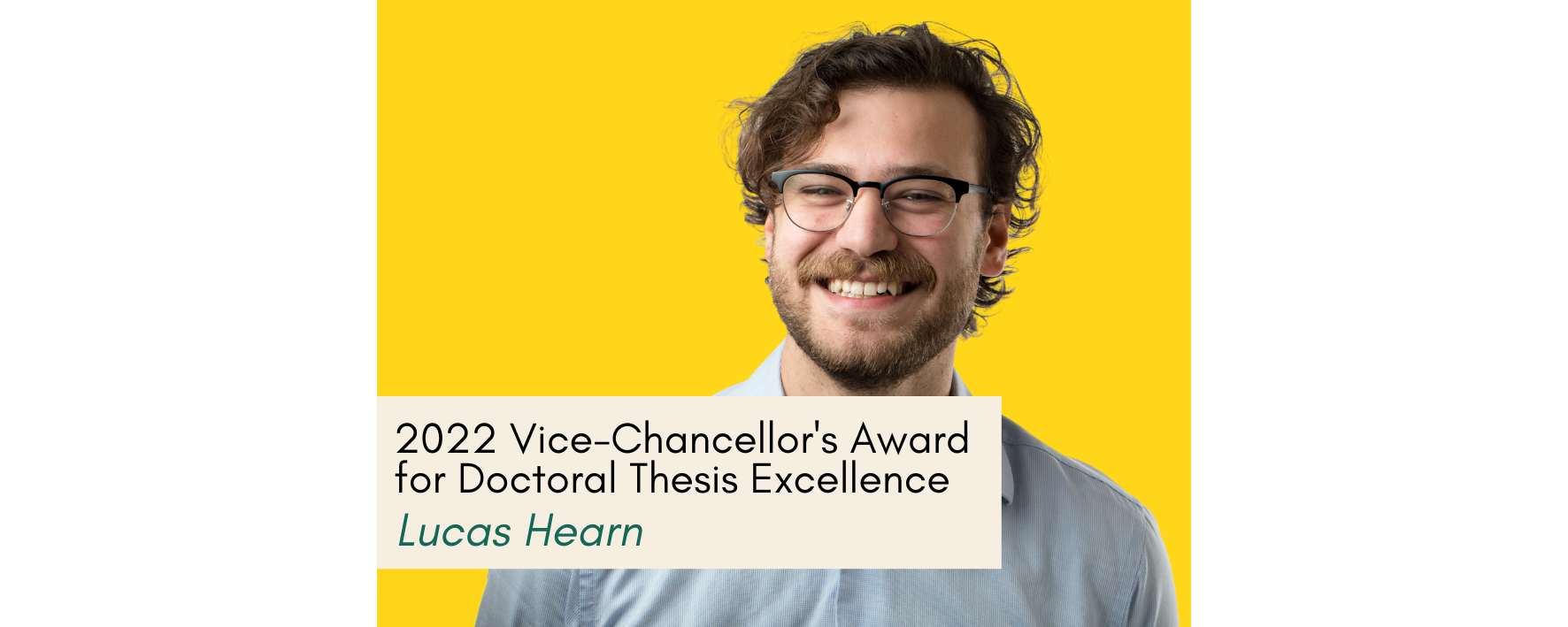
Lucas Hearn is from the College of Science and Engineering and is one of the 12 winners of the Vice-Chancellor’s Award for Doctoral Thesis Excellence for 2022. Lucas was supervised by Associate Professor Michael Schwarz.
Lucas’s thesis “Evolution of sociality in insects: insights from the only known social colletid bee Amphylaeus morosus” which explored the process by which social organisms made the initial transition from a solitary lifestyle to a social one, focusing on a key Australian native bee species.
We asked Lucas what winning this award means and about their research and journey.
What does winning this award mean?
Receiving this award for my PhD research is an incredible privilege that I never imagined was a possibility during most of my candidature. I feel deeply grateful to my supervisors and examiners who nominated me, as this recognition would not have been possible without their guidance and support.
![]()
Tell us about your research
I conducted my PhD research on the evolution of sociality in insects with a particular focus on the Australian native bee, Amphylaeus morosus. This project provided me with a unique opportunity to explore several areas of interest, including ecology, evolution, and genetics. The chance to incorporate these diverse fields into my research drove my passion for the project, and I was thrilled to see it through to completion.
![]()
What has been one of the hardest parts of the journey?
Completing a PhD during the COVID-19 pandemic was a difficult period. I was unable to conduct fieldwork interstate for a significant period, requiring me to modify certain aspects of my project. Additionally, the inability to attend face-to-face conferences and workshops made it a lot harder to connect with likeminded researchers. Despite these difficulties, my supervisors and lab mates provided exceptional support, which was crucial to my perseverance during this period.
![]()
Where are you now?
I am currently employed in a research role at the South Australian Research and Development Institute and will begin a postdoctoral fellowship in Japan at the end of the year investigating the impact of climate change on native bees.
![]()
What advice would you give to current or prospective PhD students?
The two pieces of advice I could give from my personal experience would be to keep pushing forward even when you feel like you’re in the dark, with no sign of progress. Secondly, that building a reliable support system is crucial. Surround yourself with people who will encourage you during tough times and motivate you to keep going.
![]()

